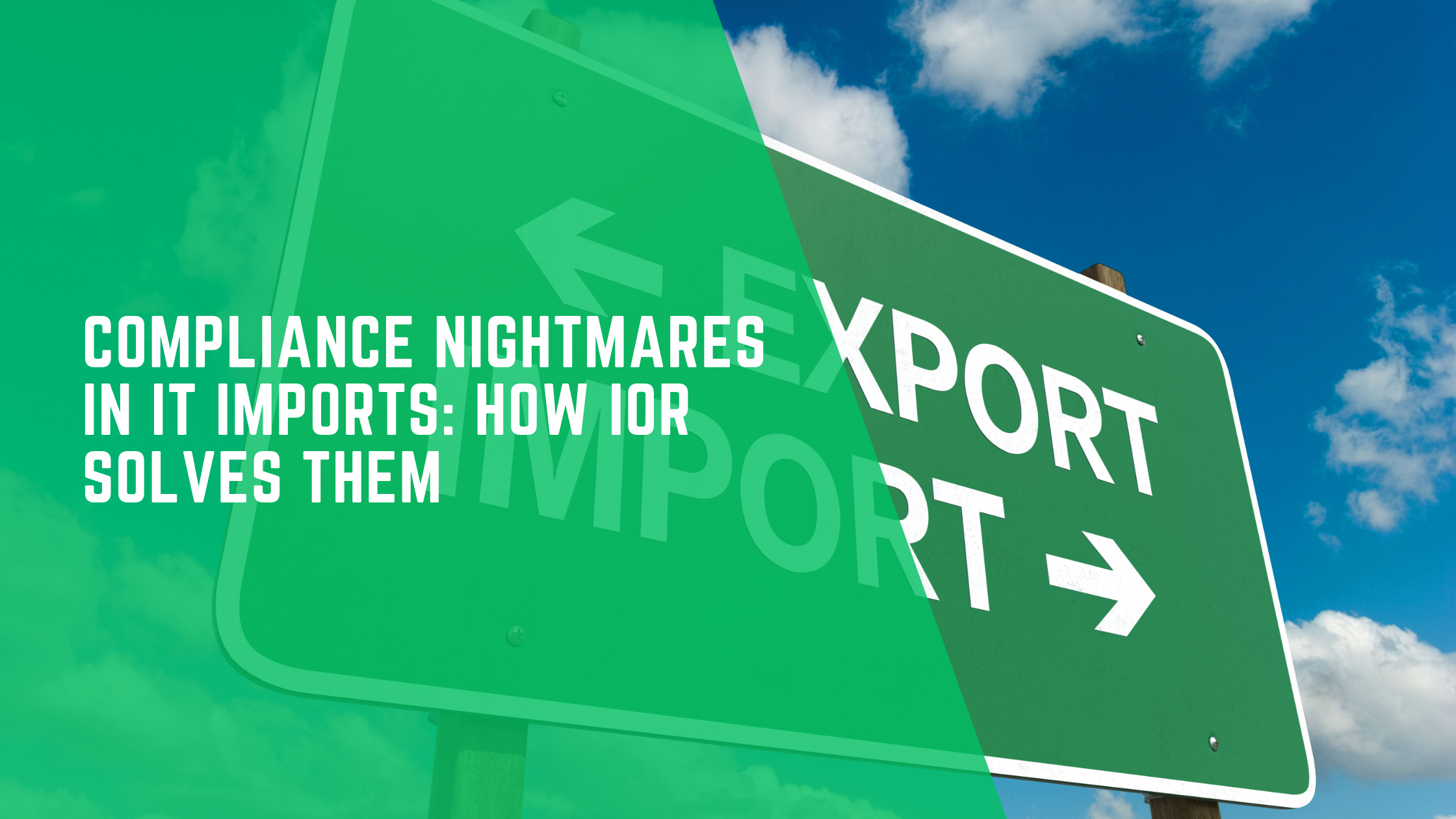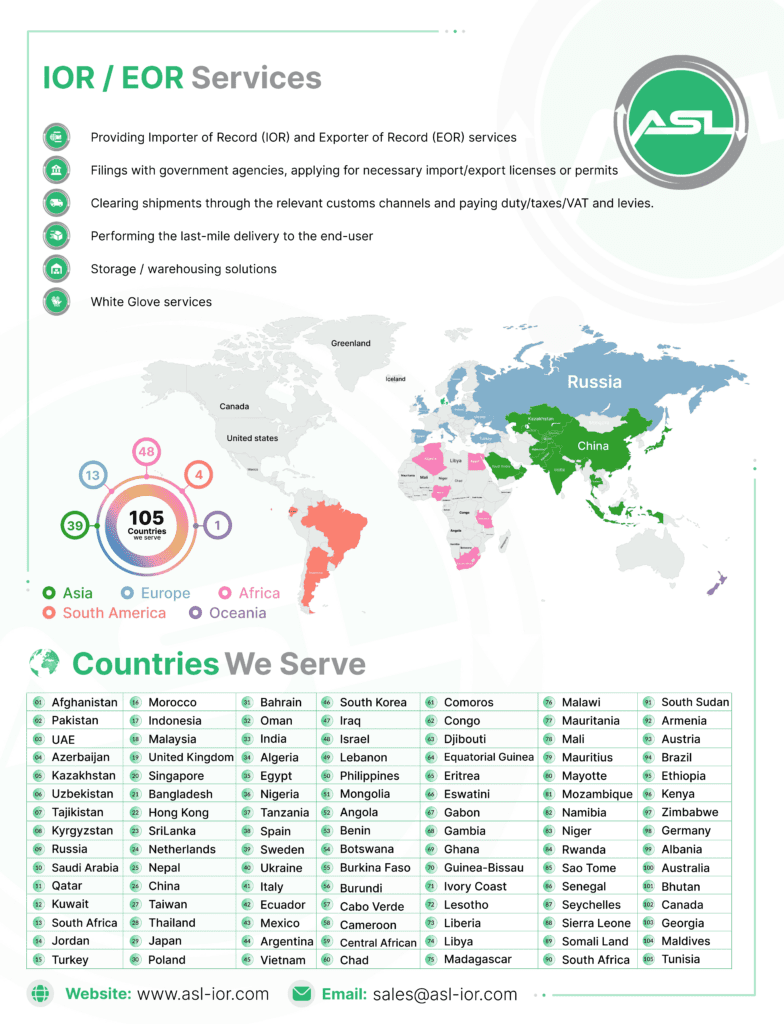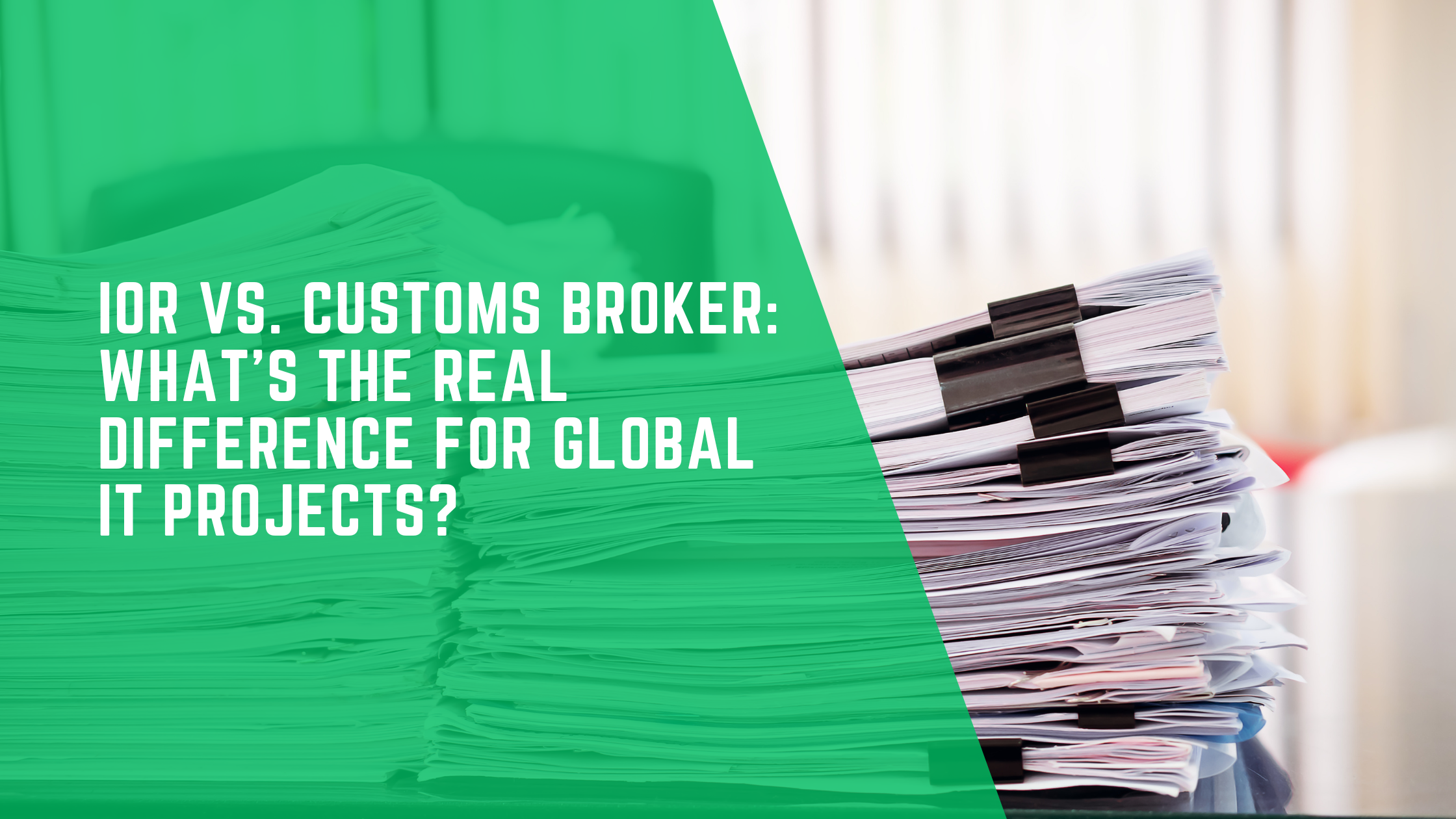
Global trade is the backbone of the IT industry, enabling companies to source, distribute, and deploy cutting-edge technology across borders. However, the road to successful…
We conduct thorough analysis and interpretation of international trade regulations to help you understand your compliance obligations.
Our experts assist you in preparing accurate and complete customs documentation, reducing the risk of delays or penalties at borders.
We assess your supply chain for potential compliance risks and provide recommendations to mitigate them effectively.
We understand that every business is unique, which is why we tailor our services to meet your specific compliance needs and objectives.

Africa’s tech sector is indeed experiencing significant growth, with a surge in investments and the rise of tech startups. In 2021, the continent’s tech startups received a record $4.77 billion in investments, and at least five new tech unicorns emerged. This growth is fueled by Africa’s young, digitally literate population and the development of tech talent, including the empowerment of female startup leaders. ASL, with its deep roots in Africa, plays a crucial role in this ecosystem by offering services that help businesses navigate the complexities of trade compliance. Their expertise in customs compliance, Importer of Record (IOR), Exporter of Record (EOR), and Delivered Duty Paid (DDP) services make cross-border transactions simpler and more efficient for tech companies operating in Africa. As Africa continues to strengthen its position in the global trade arena, the opportunities for growth in the tech sector and the cross-border supply chain are vast, promising a bright future for the continent’s economic development.
Asia’s technology sector is experiencing rapid expansion, presenting significant opportunities for the tech supply chain. The region has seen a substantial increase in tech-company revenues, startup funding, research and development spending, and patent filing. However, navigating the customs clearance process in Asia can be challenging due to the region’s vastness, diverse trade agreements, tariffs, sanctions, restrictions, and cultural differences.
ASL as a leader in global trade compliance and Importer of Record services, offers invaluable support for businesses looking to enter the Asian market. Their expertise helps companies manage the complexities of international trade, ensuring compliance and efficient customs clearance. This partnership allows businesses to concentrate on innovation and market growth while we handle the intricacies of cross-border transactions.
The European Union’s technology sector is a significant global force, with key players rooted in Germany, Italy, France, and the Netherlands. The industry has seen a robust compound annual growth rate of 8.4% between 2014 and 20211. Despite this, non-EU countries face complex challenges when importing into Europe due to intricate trade agreements and customs formalities that have arisen post-Brexit.
ASL offers comprehensive solutions that streamline the import/export process across EU borders. Their services are designed to ensure compliance with EU customs regulations, providing support with customs declarations, import duties, licensing, EORI registration, and navigating tariff exemptions. This end-to-end approach facilitates smoother trade operations for businesses looking to engage with the European market.
North America is a central pillar in the global technology landscape, fostering innovation and technological breakthroughs. The United States, Canada, and Mexico are key contributors to global trade within the tech sector. The region represents a significant portion of the worldwide tech trade, with emerging tech hubs like Georgia, Florida, and British Columbia gaining prominence due to government support and access to talent and resources. ASL provides comprehensive import/export management services, facilitating seamless trade across North American borders and supporting the region’s interconnected tech trade operations.
South America’s import and export operations are integral to its economic vitality. The continent’s variety of nations, cultures, and natural wealth positions it as an influential entity in international commerce. Brazil’s verdant rainforests and the Andean highlands yield a wealth of sought-after goods and raw materials. For businesses eager to engage with this dynamic market, a thorough grasp of the intricate import and export regulations and compliance mandates is essential. These regulations are designed to facilitate trade, enhance economic growth, and support the region’s goal of reducing dependency on external markets. Moreover, initiatives like the Latin American Integration Association (ALADI) and the Andean Community aim to harmonize trade policies and simplify customs procedures among member countries.
Oceania, encompassing a range of territories, is becoming increasingly significant in global trade, particularly in the technology sector. The region benefits from various free-trade agreements, including the Comprehensive and Progressive Agreement for Trans-Pacific Partnership (CPTPP), which facilitates economic ties with key global markets. The tech trade-in Oceania is thriving, with substantial participation from leading economies like China, South Korea, and Japan. However, the cost of international trade in this region underscores the importance of strict compliance with trade regulations to ensure successful market engagement.

Global trade is the backbone of the IT industry, enabling companies to source, distribute, and deploy cutting-edge technology across borders. However, the road to successful…

In today’s hyperconnected, tech-driven economy, global IT projects are no longer optional — they are foundational to business continuity, digital transformation, and competitive edge. However,…

In the rapidly evolving global technology landscape, major tech companies are continually seeking ways to enhance their operational efficiency, ensure compliance, and expedite market entry.…
Ready to take your business from anywhere to everywhere? Partner with ASL for reliable Importer of Record (IOR) and Exporter of Record (EOR) services. Our DDP Services (Delivered Duty Paid) handle all duties and taxes for hassle-free shipping. With a focus on global trade compliance, we ensure your shipments meet all international regulations. As your trusted global IOR/EOR partner, we support your global expansion with seamless, compliant solutions.